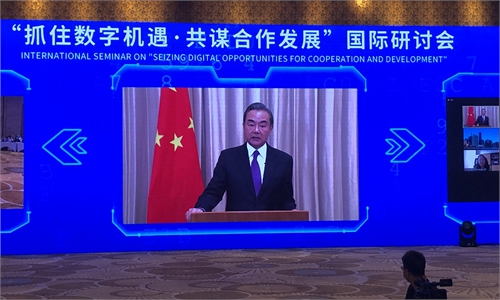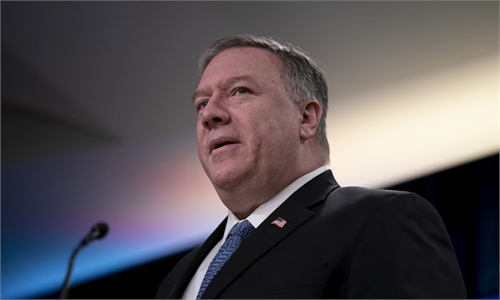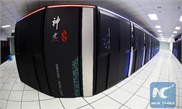China's first major in-person international trade event since the coronavirus outbreak, where 99 innovations were unveiled and 240 agreements were signed, showed the nation's resolve to expand opening-up and push for economic globalization, an official with the Ministry of Commerce (MOFCOM) said on Wednesday.
The six-day gathering incorporates the nation's prowess in digital technology innovations, which will allow for services trade to expand regardless of the pandemic. It also underscores China's drive to revitalize global trade, which is caught in raging unilateralism and protectionism, according to event participants.
A national negative list for cross-border services trade and a separate list for the nation's free trade zones and free trade ports will be rolled out within this year, Xian Guoyi, head of the Department of Trade in Services and Commercial Services of the MOFCOM, told a media briefing at the conclusion of the China International Fair for Trade in Services (CIFTIS) in Beijing.
China's services trade has ranked No.2 globally for six consecutive years. The event took full advantage of digital technologies to enable business exchanges and negotiations both online and in-person, helping companies explore opportunities to hedge against the impact of COVID-19, Xian said.
Governments at various levels, major centrally administered state-run enterprises and financial firms organized trade groups for the first time at the event to participate in negotiations and procurement, resulting in the signing of 240 agreements, he disclosed.
The amount of contracts of intent signed during the six-day event is still being calculated and will be announced later, Xian said in response to a question from the Global Times after the media briefing.
A total of 22,000 companies and institutions from 148 countries and regions took part in the gathering, including 33 international organizations, 68 embassies in China, 110 overseas business chambers and associations, and 199 Fortune global 500 firms, according to Yan Ligang, head of Beijing's commerce bureau.
Yan said that 5,372 domestic and foreign companies put on online stalls, and 3D stalls accounted for 2,037 of them, while 1,870 projects were unveiled online and 550,000 negotiations were initiated online.
Many health measures were taken to ensure the meeting's effectiveness, Yin Yong, vice mayor of Beijing, told reporters on the sidelines of the CIFTIS on Wednesday -- pre-attendance health checks, nucleic acid tests for exhibitors and volunteers, regular daily disinfection and nucleic acid testing at exhibit halls, and a cap on daily visitor numbers for key halls.
The event's registered participants and visitors exceeded 100,000, according to Xian.
Eager to take advantage of the fair to explore overseas markets, a businesswoman was at a booth of the Japan External Trade Organization (JETRO) on Wednesday, asking questions about how her electronics business could venture into the Japanese market.
A number of Chinese businesses asked how to build footprints in Japan, Kazuyuki Karasawa, deputy director of JETRO Beijing, told the Global Times, adding that this year's CIFTIS allowed many Japanese companies, particularly in the elder care area, to showcase their services expertise.
A comprehensive stall for exhibits from Australia, New Zealand, Argentina, Panama and Colombia also stood out.
For the fourth time, Joshua Sun, CEO of the China Australia Business Industry Centre Group, was participating in the annual services trade fair, the only major gathering for services businesses where he could seek opportunities.
It was the first time that the three Latin American countries took part in the trade fair, according to Sun. He told the Global Times on Wednesday that the China-Australia row won't deter bilateral business cooperation and the gathering proved to be a platform for talks that might later become actual deals.
The value of deals originating from the services fair during the previous three years has been rising, Sun said.
A key focus of the six-day gathering was the announcement on Friday that the central government will support Beijing city in setting up a pilot international free trade zone for services sector opening, the digital economy and sci-tech innovation.
The creation of the zone "is of particular significance and [will have] a strong demonstration effect," Yin said.
Japanese money broker Ueda Yagi Tanshi Co's currency broking venture, the first fully foreign-owned money brokerage in China, was announced on Wednesday to be set up in Beijing's sub-administrative center.
Daiwa Securities' majority-owned joint venture in China, the first Japanese-invested securities firm to be granted an underwriting and sponsoring license, was also announced Wednesday to be located in Beijing.
The capital city also unveiled an intellectual property trading center on Wednesday that is intended to become a key facility for the nation's sci-tech innovation center and a pivotal hub for international intellectual property cross-border trade.
Source link
RELATED ARTICLES:

- High tech against COVID-19 on show at 2020 CIFTIS
- Winter sports high tech on show at 2020 CIFTIS
- Winter sports exhibition at CIFTIS focuses on visitor experience
US stock turbulence tells rising danger of tech divide
The US stock market appears to be entering a period of heightened volatility, led by big technology and internet companies, which seem facing greater uncertainty after several months of untethered ...Related post:

























